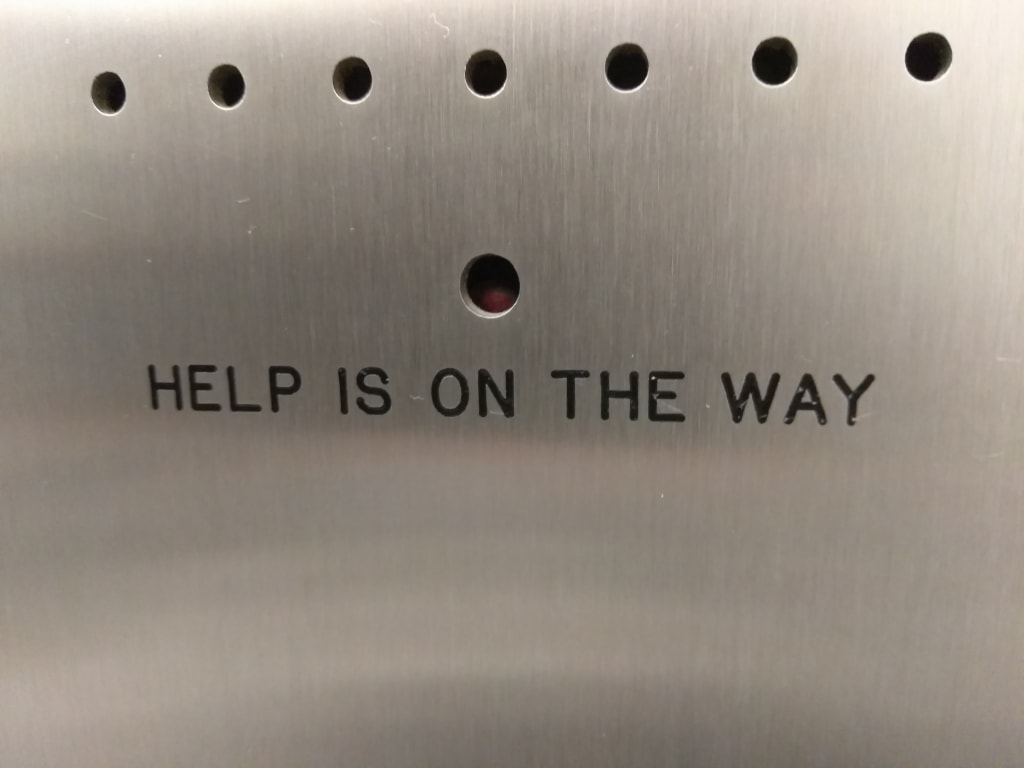The Subtle Ways Anxiety and Depression Affect Your Work
You're not alone and you CAN feel better.

There are many ways anxiety and depression affect your work. Depression and anxiety can be mental disorders on their own or the symptoms of mental illness, including mood disorders such as anxiety disorder, bipolar disorder, clinical depression, and major depressive disorder. Regardless of your mental health, stress affects us all, and even those of us who are balanced and content can suffer from symptoms of depression and anxiety.
According to the Anxiety and Depression Association of America (ADAA), anxiety disorders afflict 40 million adult Americans annually, 18.1 percent of the population. Major depressive disorders are the most commonly-diagnosed form of depression, according to the ADAA, afflicting approximately 16.1 million adult Americans, 6.7 percent of the population. While depression affects fewer people than anxiety, it’s the leading cause of disability for Americans aged 15 to 44, and nearly 50 percent of Americans diagnosed with depression also suffer from an anxiety disorder. In far too many cases, depression and anxiety travel together.
So a lot of people suffer with anxiety and depression, and many of them, perhaps most of them, have to bring their suffering to work. There are myriad ways anxiety and depression affect your work, both subtle and obvious. Both make it hard to concentrate, both undermine your confidence, both make it hard to collaborate with your coworkers and, even if you can accomplish what you need to, chances are, if you’re anxious or depressed, you won’t be able to value your own work (or anyone else’s). This, of course, implies you have called in sick because you’re too anxious or depressed to get out of bed. Mood disorders such as anxiety disorder and major depressive disorder can be as debilitating as illness or injury, especially when sufferers self-medicate with either prescription or illicit drugs—this kind of substance abuse always exacerbates the disorder and its symptoms.
According to The Economic Burden of Anxiety Disorders, an ADAA study published in the Journal of Clinical Psychiatry, anxiety disorders cost the USA more than $42 billion per year. As for depression, according to Mental Health America (MHA), untreated depression is as costly as heart disease to the US economy, over $51 billion in absenteeism from work and lost productivity and $26 billion in direct treatment. People with depression are of every age and ethnicity, and both men and women suffer but, according to MHA, it “tends to affect people during their prime working years.”
You might be feeling listless at work, dissatisfied… Maybe you’re irritable and anxious? Maybe you can’t muster the motivation to tackle the projects you’ve been assigned? Maybe you just feel down? Overwhelmed? Defeated, even? How anxiety or depression affects a person varies case by case, but if you’re experiencing any of the aforementioned symptoms, you should probably make an appointment to see your primary care physician and discuss your options. These include therapy, both on its own and in combination with medication. If you don’t have a therapist, your primary care physician can make a recommendation. You might need traditional therapy, where you sit and discuss your feelings with a psychologist, or you might need cognitive therapy, which helps you change your thinking patterns. If you need medication, there are myriad anti-depressants available, including Celexa, Prozac, and Wellbutrin, as well as plenty of anxiety medications, including Xanax.
Regardless of how you approach your condition in a medical or therapeutic setting, there’s plenty you can do on your own to alleviate some of your symptoms. Regular, healthy meals help, as does exercise and proper sleep. Just making an effort to take better care of yourself is worthwhile, as it will help bolster your feelings of self-worth. For me, exercise is crucial. No matter what mood I’m in, a good solid hour of cardio will improve it. A tough hour on an elliptical trainer or a stationary bike, followed by a hot shower, and I feel like a new person, like I’ve started over. You need to sleep, too. The less sleep you get, the more prone you’ll be to anxiety and depression. Don’t skimp on sleep.
Beyond diet and sleep and exercise, there are a lot of things you can do to reduce your anxiety and ameliorate your depression (and ultimately improve your performance at work). Definitely don’t sequester yourself from the people who love you, your friends and family—don’t think because you’re down, you should hide from them. And do whatever it takes to make yourself feel better: clean the house, watch a few movies, treat yourself to ice cream… It’s also a good idea, once you’re feeling well enough, to make to-do lists and work your way through them. It’s hard to believe when you’re anxious or depressed, but getting a lot done will alleviate much of your suffering. Clear the decks and give yourself room to breathe. And baby yourself if and when you need to. If you’re not feeling well, don’t push yourself harder than you have to—give yourself a break. You need it and you deserve it.
Finally, there are plenty of books out there to help you. Try The Anxiety Workbook: A 7-Week Plan to Overcome Anxiety, Stop Worrying, and End Panicand The Depression Cure: The 6-Step Program to Beat Depression without Drugs. You’re fighting a lengthy battle against insidious enemies. Arm yourself with knowledge and do not go gently! It's so hard, I know, so very hard, but you owe it to yourself to feel better. And you can.
About the Creator
David Porter
David A. Porter has been the editor at large for Stereo Embers Magazine, an online music site, since 2007. David received an MFA in Creative Writing and an MA in English from San Francisco State University. He is a Rutgers graduate.






Comments
There are no comments for this story
Be the first to respond and start the conversation.